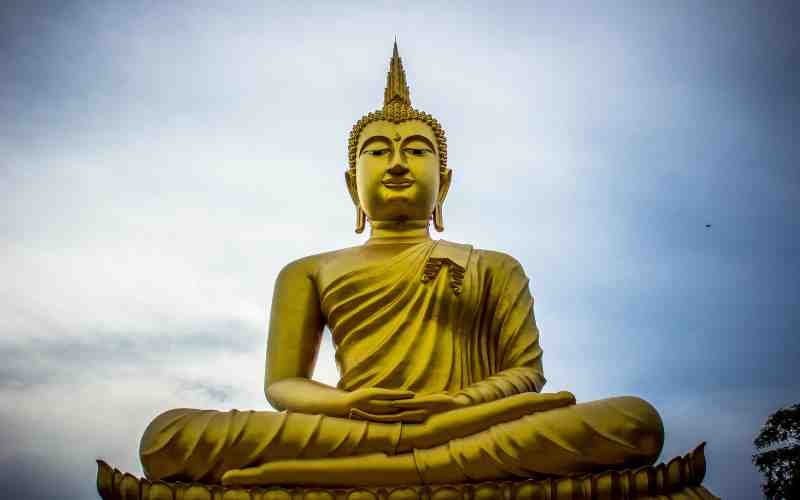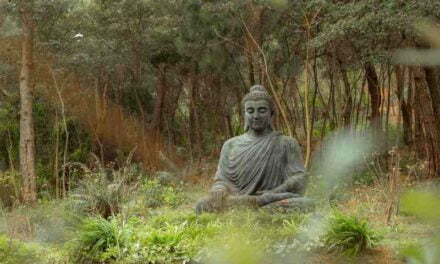The Path to Inner Peace
In today’s fast-paced and chaotic world, finding inner peace may seem like an elusive dream. However, Buddhism offers timeless wisdom and practical tools to navigate the challenges of life and cultivate a sense of tranquility amidst the storm. One of the key teachings of Buddhism that can lead us to inner peace is mindfulness.
Mindfulness is the practice of paying attention to the present moment with openness, curiosity, and non-judgment. It involves fully embracing our experiences, both pleasant and unpleasant, without getting caught up in them or trying to change them. By cultivating mindfulness, we can develop a deep sense of inner calm and resilience.
The Power of Self-Discovery
Self-discovery is an essential aspect of the Buddhist path. Through self-reflection and introspection, we can uncover our true nature and understand the causes of our suffering. Buddhism teaches that our suffering arises from attachment, aversion, and ignorance. By gaining insight into these patterns of mind, we can free ourselves from their grip and experience greater freedom and happiness.
Self-discovery also entails exploring our values, passions, and purpose. Buddhism encourages us to live a meaningful life aligned with our deepest aspirations. By understanding ourselves better, we can make choices that bring us joy and fulfillment.
In today’s fast-paced and increasingly chaotic world, the pursuit of inner peace and self-discovery has become more essential than ever. Amidst the constant noise and distractions, mindfulness has emerged as a powerful tool for individuals seeking to find clarity, balance, and a deeper connection with themselves. This practice goes beyond mere stress reduction; it unlocks the potential for profound personal transformation.
Mindfulness is the art of being fully present in the moment, observing one’s thoughts and feelings without judgment. It is not a new-age fad but a practice rooted in ancient traditions, including Buddhism and Taoism. By cultivating mindfulness, individuals can tap into a wellspring of inner peace and self-discovery.
One of the primary benefits of mindfulness is its ability to reduce stress and anxiety. In a world where many are constantly plagued by worries about the past or future, mindfulness brings the focus back to the present moment. By paying attention to the sensations of the breath, the sounds in the environment, or the physical sensations in the body, individuals can release the grip of anxiety and experience a profound sense of calm.
Mindfulness also enhances self-awareness. It invites individuals to explore their thoughts and emotions with curiosity and non-judgment. Through this process, people can gain a deeper understanding of themselves, including their habits, triggers, and patterns of thinking. This self-awareness is the first step towards personal growth and self-discovery.
The practice of mindfulness has been shown to improve mental well-being. It can help alleviate symptoms of depression and prevent relapses. By acknowledging and accepting negative thoughts and emotions without attachment, individuals can break free from the cycle of rumination and self-criticism that often accompanies depression.
Moreover, mindfulness fosters emotional regulation. When individuals become more attuned to their emotions, they can respond to challenging situations with greater equanimity. Instead of reacting impulsively to anger or frustration, they can pause, observe their emotions, and choose a more measured response. This emotional intelligence is a crucial aspect of self-discovery and personal growth.
Cultivating Mindfulness and Self-Discovery
The practice of mindfulness and self-discovery go hand in hand. Mindfulness allows us to observe our thoughts, emotions, and sensations with clarity and non-reactivity. This awareness gives us the space to investigate the nature of our experiences and uncover the underlying causes of our suffering.
Here are some practical ways to cultivate mindfulness and self-discovery:
- 1. Daily Meditation: Set aside dedicated time each day to sit in meditation. Focus your attention on the breath or a chosen object of meditation. As thoughts and distractions arise, gently bring your attention back to the present moment. Through regular meditation, you can develop a stable and focused mind.
- 2. Mindful Daily Activities: Bring mindfulness into your everyday activities. Whether it’s eating, walking, or washing dishes, pay attention to the sensations, movements, and thoughts that arise during these moments. Engage fully in each activity, savoring the present moment.
- 3. Journaling: Take time to reflect on your experiences by journaling. Write about your thoughts, emotions, and observations. Journaling can provide valuable insights into your patterns of mind and help uncover deeper layers of self-awareness.
- 4. Study and Contemplation: Dive deep into the teachings of Buddhism. Read books, listen to talks, and engage in discussions that expand your understanding of the path. Contemplate on the teachings and apply them to your own life.
By integrating these practices into your daily routine, you can unlock the power of mindfulness and self-discovery. Embrace the journey of inner exploration and witness the transformative effects it has on your life.





